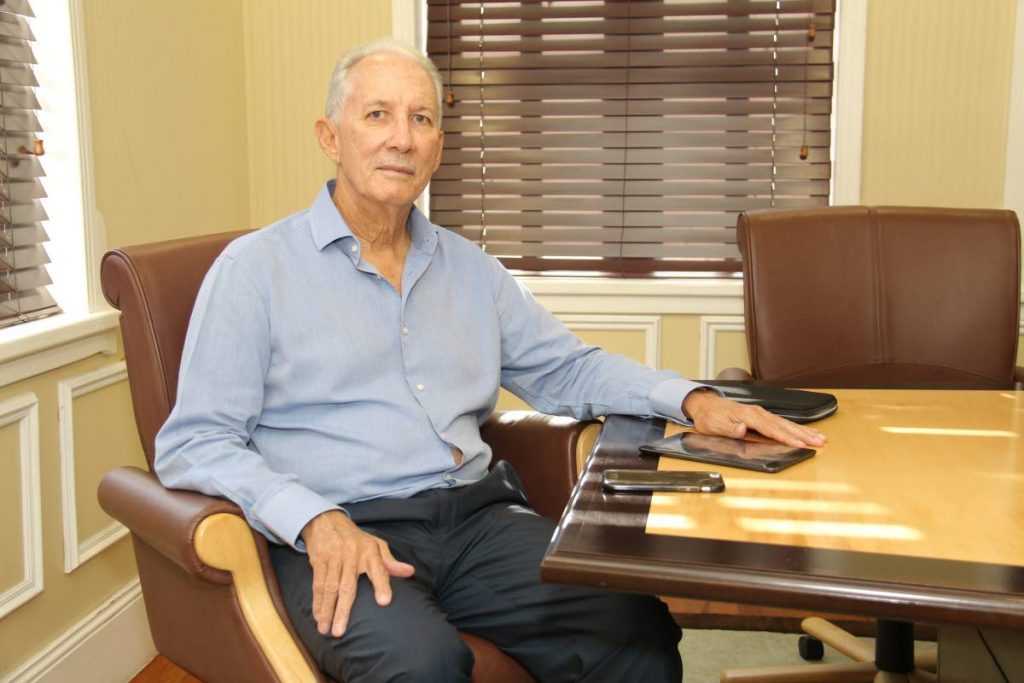Moves to privatise Petrotrin

CARLA BRIDGLAL
AS PETROTRIN restructures in an attempt to return to profitability, the state oil company needs to manage and in some cases mitigate the power and influence of two of its biggest stakeholders: government and the Oilfield Workers Trade Union.
“We have a number of stakeholders very visible in Petrotrin’s direction and life. One is the government, another is the union. And these two very visible entities have not clearly been able to find a comfortable spot in Petrotrin’s future,” company chairman Wilfred Espinet told Newsday, during an interview on the weekend.
Espinet is head of a new transition team that took over management of the compnay from March 1, upon the exit of former top executives. Because of this, observers — in particular creditors, whom the company desperately need to assuage — will be looking to see how the board manages its transition period and if the board can manage relationships to bring about harmony, stability, and ultimately, growth and profitability.
As a 100 percent state-owned company, government is inevitably entangled in the affairs of the company. The board itself is appointed by the President at the discretion of the Prime Minister and Cabinet. It is also implicitly understood that government is a 100 percent guarantor of Petrotrin’s debt, estimated to be over $10 billion.
TIME TO WEAN GOVT OFF
The government is also, ironically, a creditor: the company owes it about $3 billion, including royalty payments. Any disruption in Petrotrin’s ability to service its debts then, can have a ripple effect on the country’s own credit rating. “I think a lot of people will question if it can be done, not from the perspective that it couldn’t but because some of the stakeholders’ involvement and influence in the process,” Espinet said. Regarding the government, Espinet said, the challenge comes from the fact that culturally and historically, government’s involvement in Petrotrin has been very deep. “We are trying to discourage that kind of closeness to allow us to come out of it,” Espinet said. The company recognizes the need to wean itself off government.
Regarding the company’s debt in relation to the government’s capacity for borrowing and the country’s credit rating, Espinet said the board is now trying to convince government to consider a process that will separate that. “We would like to believe that one day, Petrotrin should be able to stand on its own,” Espinet said.
The way the board sees it, he said, Petrotrin isn’t owned by government — it’s owned by the State...that is, the people. That dichotomy often gets muddled. “I don’t think the platform of any government is that they want to run Petrotrin. The question is how can we discourage it from happening,” Espinet said.
Last year, a committee headed by Ministry of Energy Permanent Secretary Selwyn Lashley, reviewed the company’s operations. Among its findings, aside from the suggestion that the company should be split into separate operational entities, was the need to ring-fence government from a state asset that is operating in a commercial productive sector.
PETROTRIN, OWTU IN DEEP TALKS
Our system does not work well with a government interfering in that process. A government is inevitably a temporary position and they may do things with the asset that may be in their interest but not necessarily the State’s,” Espinet said.
There’s a bigger end game than just fixing the company’s problems in the short term, he said, and inherent in the restructuring process is to protect the company for future involvement, and bring about a measure of continuity.
With every new government, a new board is installed, along with new members of senior management, stymieing the transfer of critical institutional knowledge, that is ultimately not in the best interest of the company, even if it is politically expedient.
Key to the company’s transformation though, is the human capital, and Espinet diplomatically noted there was some “sensitivity around negotiations” with the majority union, the Oilfield Workers’ Trade Union (OWTU). “We have to be practical about what we can say without having the other party upset,” he said. Public commentary has to be “extremely careful”, but Espinet acknowledged that both parties are in “deep discussion.”
The good news, he said, is that both Petrotrin and the union have been able to find common ground. “That makes the situation salvageable,” he said.
Asked about the nature of the conversation, whether it includes wage and personnel cuts, for example, Espinet said it was “total negotiation happening.” Efficiency inevitably brings up the concept of privatization, something the union especially has been adamantly against.
Citing the Lashley Report, Espinet noted that Petrotrin needs two things: money and technical expertise—neither of which has been readily available in the current operating environment. Among the permutations for privatization (or at least reduced to no government control, Espinet suggested some sort of public offering, partnerships or even some sort of employee ownership. “But you can’t go to the stock exchange if you’re not profitable,” he said.


Comments
"Moves to privatise Petrotrin"